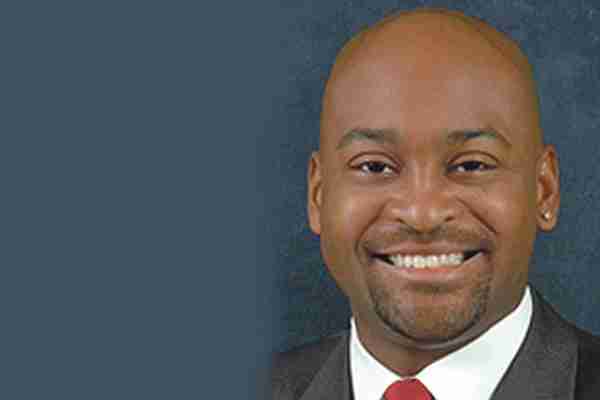MIAMI GARDENS — Causes and issues important to the Caribbean community are becoming more prominent on the campaign trail in Miami-Dade County, where Haitian-American and other candidates of Caribbean descent are becoming increasingly more vocal and critical of incumbent office holders, some of them native black Americans.
An undertone of political friction between the two ethnic groups surfaced Monday at a candidates forum sponsored by the Miami Dade Branch of the NAACP at New Way Fellowship
Baptist Church in Miami Gardens, where some Haitian-American candidates accused African-American incumbents of not representing the entire community.
In South Florida’s only state senate race in the Aug. 26 primary, for the District 36 seat, incumbent Oscar Braynon II, D-Miami Gardens, is being challenged by Anis Auguste Blemur, a Haiti-born accountant.
Blemur said Braynon was not being an inclusive leader in the district which takes in parts of Miami-Dade and Broward counties.
“I believe we need someone who can bond everyone, no matter your language, where you come from. Especially the Caribbean Americans who need leadership, I am here for you,” Blemur said at the forum.
Braynon was a Miami Gardens city councilman before being elected to the Florida House in 2008 and then the Senate in 2011 and re-elected in 2012 after redistricting.
Braynon was not at the forum but a representative rejected Blemur’s charge and commended the senator for “serving with dignity.” Braynon, he said, works for the entire community. “He’s touchable.”
In the House District 107 race, state Rep. Barbara Watson has three challengers, including former state Rep. Philip Brutus. If Brutus succeeds in his bid to return to the Legislature, he will, he said, push for Florida to open a trade office in Haiti.
“Florida has 15 trade offices around the world. There’s not one in the Caribbean,” Brutus said at the forum.
Local roofers, construction companies, plumbers and others have no chance to get a contract in Haiti’s post-earthquake rebuilding, Brutus said. “If we had the office there, you can at least say, ‘Let me try to get a piece of that work from here.’”
Michael Joseph, an attorney, is also challenging Watson for the seat she has held since being elected in 2012. While Joseph was born in South Florida, Brutus and Dominique Simon, a retired educator who also is eyeing the seat, were born in Haiti.
Watson, in response, called for unity. “I am an individual who reaches out to the community and works with the community,” Watson said to applause at the forum.
“I want you to realize that we don’t have two communities here; we have one community. We are a people of color in District 107 and we have one type of rainbow going in this community and we are not going to separate it. We are not going to sit back and say this is for this group or that group. We are one,” Watson said.
Another prominent contest pitting an African-American against a Haitian-American contender is for the U.S. House of Representatives District 24 seat. Incumbent Frederica Wilson is being challenged by Michael Etienne, a lawyer who is the North Miami city clerk.
Etienne, who is of Haitian and Bahamian descent, said he does not buy into the Haitian American versus African American rift as it relates to the congressional race. In a recent Facebook posting, he said, “I was born and raised right here in Miami-Dade County. Wilson’s parents were born in the Bahamas but she is considered black American. However, my family are from Haiti and the Bahamas but I am considered – what? Thus, your Haitian versus black American argument does not hold water here because, like Wilson, I was born and raised right here in these United States.”
Etienne, who said he participated in Wilson’s celebrated 5,000 Role Models of Excellence project, praises her for her accomplishments but said she is “not being liberal enough.” Wilson, who did not attend the forum, has widespread support in the district, including many in the Haitian-American community.
Meanwhile, Taj C. Echoles, a candidate for state house District 108, spoke of his Bahamian roots from his mother and his American heritage from his father, who was born in Athens, Ga.
“I represent what a lot of us are in this district. I am an individual that is a byproduct of different sectors of what represents Miami,” said Echoles, an educator who was born in Miami. Calling the district “unequivocally underrepresented,” he said the incumbent, Daphne Campbell, represented a small minority “which does not speak well for a district.”
Campbell was first elected in 2010 but her terms in office have been plagued by criticism and legal problems involving her family’s healthcare business.
Campbell also has another challenger, Michael Hepburn, an administrator at Florida International University. Neither Hepburn nor Campbell attended the forum.
“District 108 is by far the most diverse district in South Florida,” Echoles said. “It is not a matter of black, white or Haitian.”
By contrast, an African American is challenging incumbent Miami-Dade County Commissioner Jean Monestime, the first Haitian American to be elected to the commission.
Dorrin D. Rolle, a consultant, served on the commission from 1998 to 2010, when he suffered an upset defeat by Monestime. Rolle did not attend the forum.
Rolle’s re-election bid then was seen as hampered by ethical questions surrounding him and accusations of mismanagement of the James E. Scott Community Association (JESCA), a huge nonprofit community service organization that went bankrupt and was closed after he stepped down as its head.
Another Monestime challenger, the Rev. Antwane “A.D.” Lenoir, a Miami native who is senior pastor of Westview Baptist Church in North Miami-Dade, focused his remarks on bringing economic opportunity, activity and stability to the community.
Monestime followed suit, listing some of his accomplishment as commissioner, including expanding job opportunities and bringing a new community center, a Wal-Mart, and $126 million worth of sewer and water lines to improve the district’s infrastructure.










No Comment